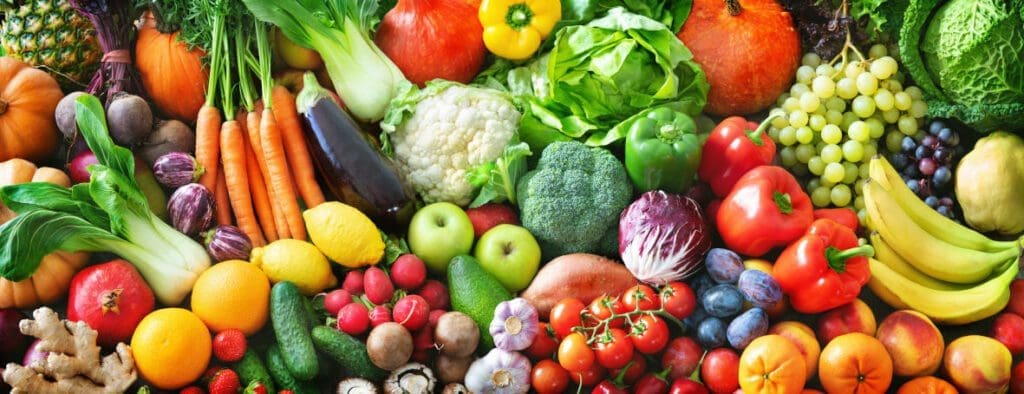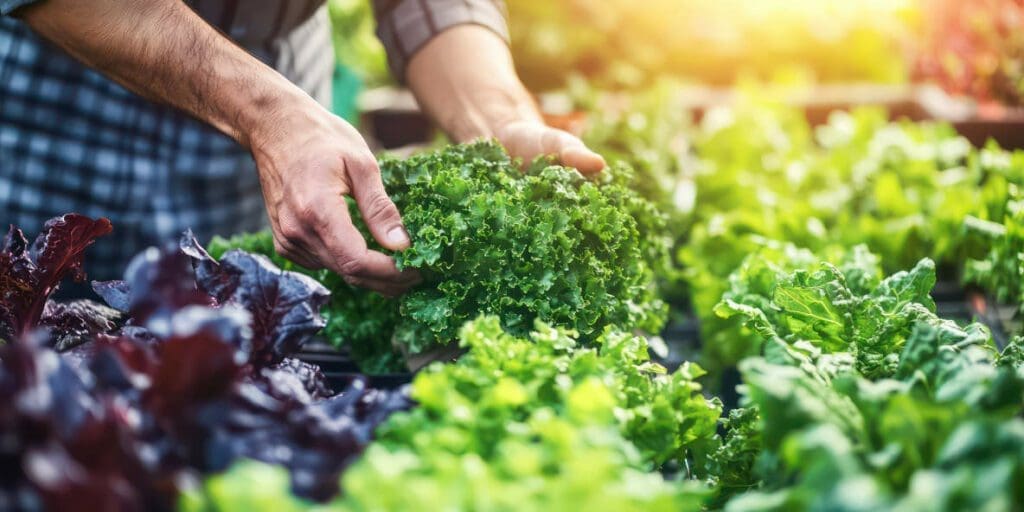
Organic Food:
Eating Well and Supporting Sustainable Agriculture
Eating properly also means trying to buy high-quality products whenever possible. When products are purchased locally, you can better understand their origin and the farming standards they follow. Supporting local farmers helps reduce the number of intermediaries involved in food distribution. Choosing local products also cuts down on transportation and processing, and allows farmers to earn more, which in turn supports better food quality and production.
Growing organic fruits and vegetables is more challenging than conventional farming, but it’s healthier both for the consumer and for the farmer.
Field contamination increases carbon emissions for many reasons. (We don’t only measure carbon as CO₂ in the atmosphere—we also consider soil contamination, biodiversity loss, and other ecological factors.)
Some people believe that organic food “always contains pesticides” or is “too expensive.”
It’s true that organic farming may rarely use small amounts of approved pesticides, but these are strictly regulated and limited to a few products. The quality of organic food is not at all comparable to non-organic alternatives.
Buying organic food directly contributes to sustainability and healthy farming practices. Each purchase is an investment in sustainable agriculture.
The price of organic food has significantly decreased in recent years due to increased production. Over the past decade, the availability of organic products has grown, and today, prices are often nearly equal to those of conventional products—making the quality difference even more meaningful.
“The Soil Association” is an example of a charity and NGO created with the goal of providing an organic certification label for food products.
Support from the Soil Association for Organic Farming
The Soil Association supports individuals interested in organic farming by providing guidelines and specifications, particularly regarding pesticide use. One key requirement is that the soil must not have been treated with pesticides for a certain period (usually around five years). Additionally, organic fields must be located a certain distance away from conventional fields using pesticides.
Products are regularly tested to verify pesticide levels. If pesticide residues exceed established thresholds—or are simply detected—products may be disqualified from being certified organic.
The Soil Association’s official website offers helpful advice on sustainability, including guidance on protecting wildlife diversity and promoting ecological balance.
Organic Food Delivery Services in the UK
Several UK-based companies offer organic food or organic produce delivery.
You can find a list of recommended companies on the Ethical Consumer website:
👉 https://www.ethicalconsumer.org/food-drink
Two of the most well-known companies providing organic food delivery are:
“RiverFord” :
“Abel And Cole” :

Comments are closed